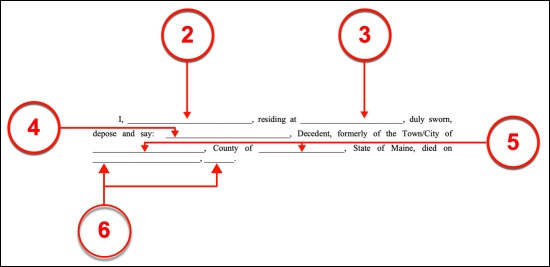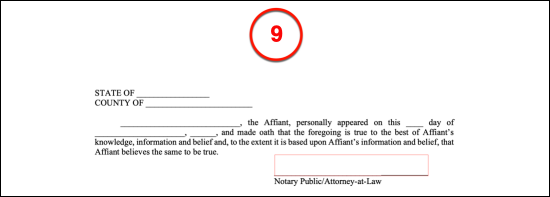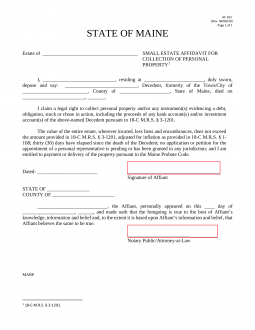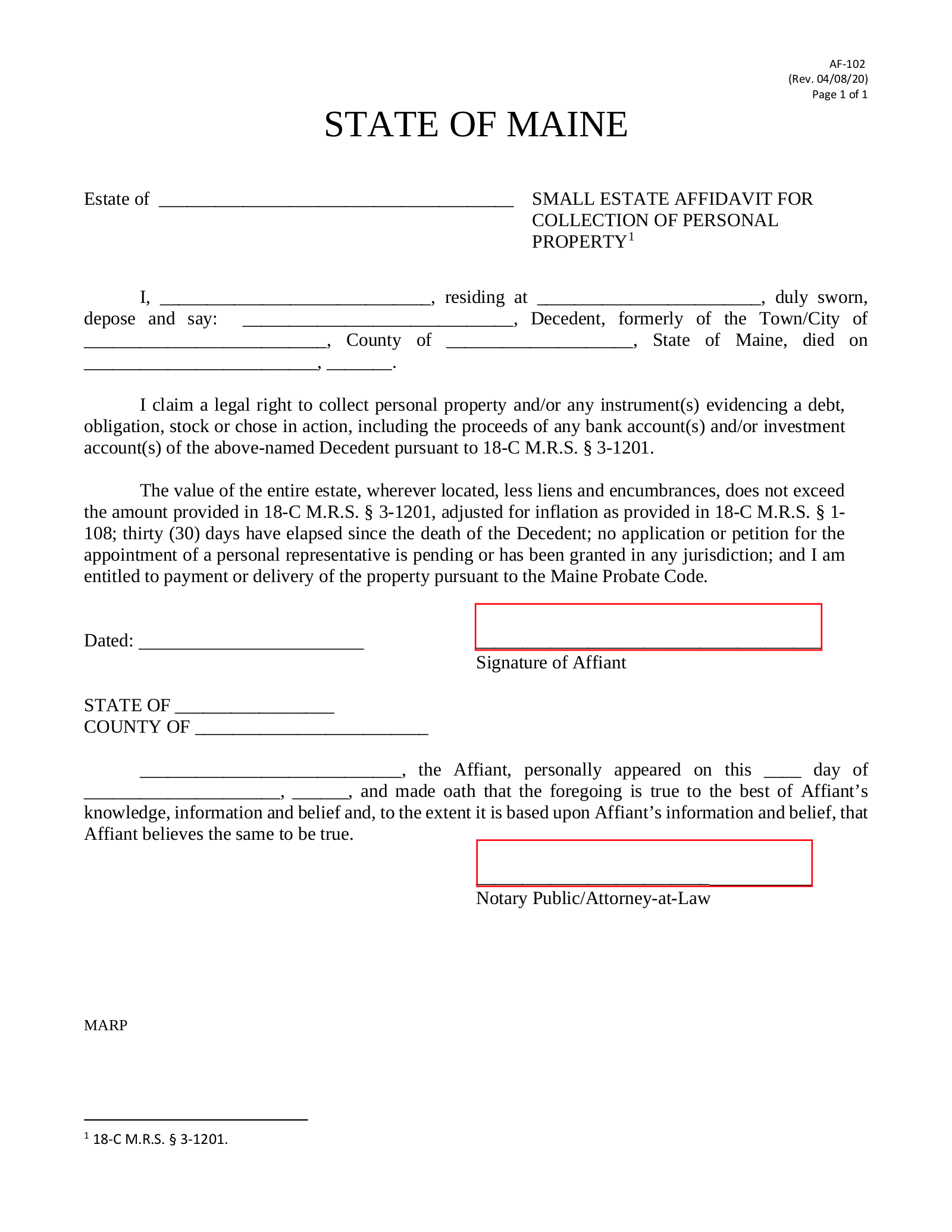Updated September 13, 2023
A Maine small estate affidavit is a document permitting an individual to file a claim on the estate of a deceased person. It is used when the deceased, also known as the decedent, has a “small estate” that is valued at less than $40,000. The individual who is filing the affidavit, or affiant, utilizes this form to claim any property in the decedent’s estate that they believe is rightfully theirs.
Laws
- Days After Death – Thirty (30) days (18-C M.R.S.A. § 3-1201(B))
- Filing Fee – For filing a will for no probate, the fee is $15 (18-C M.R.S.A. § 1-602).
- Maximum Amount ($) – $40,000 (18-C M.R.S.A. § 3-1201(A)) This figure may fluctuate depending on the adjustments made by inflation when the Consumer Price Index exceeds or is less than the reference base index. 18-C M.R.S.A. § 1-108.
- Signing – The affidavit must be signed by the affiant and acknowledged by a notary public.
- Statutes – Collection of Personal Property by Affidavit and Summary Administration Procedures for Small Estates
How to File (3 steps)
2. Complete Documents
- Copy of the Decedent’s Death Certificate
- Small Estate Affidavit for Collection of Personal Property (AF-102)
3. File With Probate Court
Video
How to Write
Download: PDF
(1) Maine Decedent Name. The Maine Decedent must be identified. To this end furnish his or her name to the beginning of this petition. Make sure it is written as recorded on his or her official death certificate.

(2) Affiant To Maine Decedent Estate. The Petitioner or the Maine Affiant will need to be identified as well. This is the Surviving Party of the Maine Decedent who has a legal and unattested claim to the remaining estate of the Deceased.
(3) Address Of Affiant.
(4) Maine Decedent Name. The full name of the Maine Decedent is required to complete the declaration this document makes.
(5) Location Of Maine Decedent Residence. The town or city, as well as the county where the Maine Decedent lived and maintained a home address, should both be supplied to this statement.
(6) Formal Date Of Death. Complete the identification process of the Maine Decedent by supplying the official date of his or her death.

(7) Signature Date To Maine Petition. The Maine Affiant causing this petition will need to provide a notarized signature that is dated. Therefore, he or she must enter the current date on the day this document is executed.
(8) Petitioning Affiant Signature. The Petitioner or the Maine Affiant must sign his or her name if the above statement is true. This means that to his or her knowledge there are no other Survivors to the Maine Decedent with a stronger claim to the remaining estate than him or her (the Affiant), that the estate worth remains within the threshold of Maine’s current definition to a small estate (i.e. worth less than $40,000.), and that it has been at least thirty days since the day of the Maine Decedent’s death and the signature the Affiant provided above.

(9) Maine Notary Action Required. The Notary Public overseeing this document’s signing will subject the signed paperwork to notarization to further strengthen the identity of its Signature Party.



